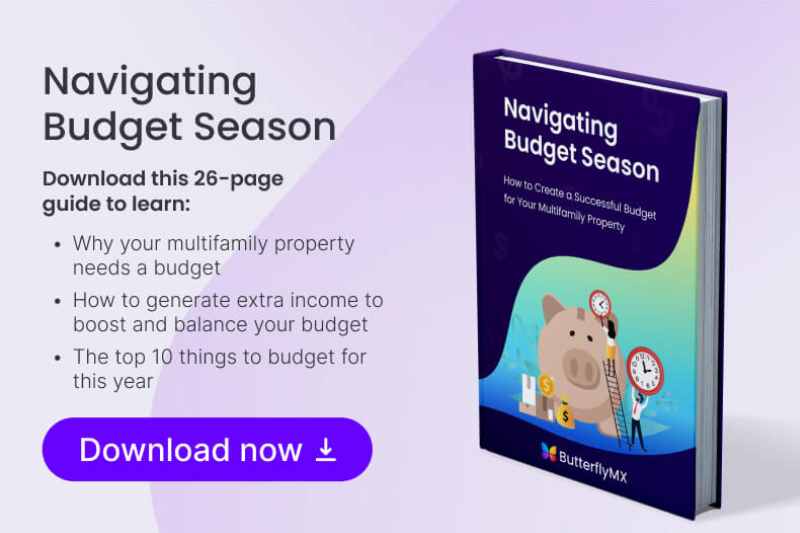Key takeaways
- Real estate tools include investment software, property analysis apps, and websites that determine the best investment opportunity.
- Popular real estate investing apps include Roofstock, Yieldstreet, and Fundrise.
- Some of the best real estate tools for investors include DealCheck, Rentometer, and Stessa.

Disclaimer: This content is for informational purposes only, you should not construe any such information as legal, tax, investment, financial, or other advice. Nothing contained on our site constitutes a solicitation, recommendation, endorsement, or offer by ButterflyMX or any third-party service provider. ButterflyMX is not a financial adviser. You should always seek independent legal, financial, taxation, or other advice from a licensed professional.
Investing in real estate has come a long way, thanks to modern technology. Nowadays, real estate tools for investors can help you find your ideal property faster and more efficiently than ever before. Expert-level information is at your fingertips if you know when and how to use the right investment tools.
In this guide, we’ll cover what real estate tools are. Next, we will list a few of the top real estate investment apps. Finally, we’ll explore some of the most useful investment tools on the market.
This post covers:
- What are real estate tools?
- What apps do investors use for their real estate? Our top 3 choices
- 5 real estate tools for investors
What are real estate tools?
Real estate tools refer to real estate investment software, apps, and websites that you can utilize when investing in real estate.
Real estate tools can help you:
- Find a property that has been a profitable investment in the past.
- Discover neighborhoods that are on the economic rise.
- Predict the depreciation of a property.
- Determine the structural integrity of a property.
- Find the market demand for a property.
- Market properties.
What apps do investors use for their real estate? Our top 3 choices
There are many real estate tools in the form of apps that investors can use to make actual investments. These apps can also teach you how to track real estate investments and keep your investments organized.
Beginner real estate investors will find real estate investing apps especially useful as they learn to invest. Most of these apps cut down on the hard work and research that comes with investing. However, you might miss out on some of the biggest gains and possible deals by solely investing with apps.
Some of the best apps for real estate investors include:
- Fundrise. This app allows users to invest in REITs (real estate investment trusts) and different electronic real estate funds. The biggest advantage is that you don’t have to be an accredited investor to use the app.
- Yieldstreet. For investors with a lot of capital, this app allows investors to invest in all types of real estate. It also offers opportunities to invest in real estate-adjacent investments such as legal settlements. Additionally, it features scheduled interest payments.
- Roofstock. This investment property search tool allows you to both purchase and sell homes without having to be physically present and involved with a property. It also offers the opportunity for accredited investors to buy shares of a property and reap earned profits.

5 real estate tools for investors
As a real estate investor, you need more than just investment-focused apps. In fact, there are many factors that go into deciding whether the real estate predictive analytics of a property will be worth your time and money as an investment.
The following tools cover a wide variety of property types. Some tools will be more or less useful depending on your experience level and starting capital as an investor. Other tools are useful when it comes to helping a property become profitable.
The top five real estate tools for investors are:
1. DealCheck
Investment property analysis tools are one of the most useful real estate tools that you will find.
DealCheck is an app that allows you to analyze the investment potential of any property from commercial to multifamily investments. In particular, it gives you estimated repair and renovation costs if you’re looking to flip a property.
The basic plan for DealCheck is free property and allows you to analyze up to 15 properties. The highest-paid plan at $20 a month allows for unlimited property reports.
That’s not bad for a tool that will do most of your work for you.
Learn how to invest in multifamily real estate:
2. Zestimate
Zillow is a platform you’re likely intimately familiar with (thanks to how user-friendly it is). Zestimate, their version of a property valuation tool, is similarly simple to use. It’s also a free feature that appears with every listing.
Keep in mind, Zestimate is not as accurate as an official home appraisal, but it’s almost certainly in the ballpark.
We recommend using Zestimate combined with another tool. That way, you can see if there is any disparity in a property’s projected value.
3. Rentometer
Are you new to renting out multifamily properties?
Rentometer analyzes local rental statistics for your area. It then uses these calculations to give you what is considered a fair rental range to start charging for your available units. Rentometer also takes into consideration how much you need to earn to eventually achieve a positive ROI (return on investment).
There is a basic plan for $50 a year and a pro plan for $99 that includes special features such as API integration and custom report branding.

4. Stessa
This is a property management tool that allows you to run a multifamily investment property more efficiently at a more economical cost.
Stessa helps you:
- Find tenants.
- Analyze profits for a particular property.
- Keep track of property and business expenses.
The starter plan for Stessa is free. The professional plan is likely only useful if you are managing a large number of properties. It costs $1,000 a month and includes features such as mortgage financing.
5. Reonomy
The average age of a US building is 53 years old, that’s a lot of history.
Reonomy uses predictive analytics to examine a building’s history and gauge how profitable its future performance can be. The app mainly features a map of any given area in the US. You can not only find information on the property that you’re interested in, but you can learn about nearby buildings — even if they aren’t for sale.
This app is especially useful for commercial properties. Reonomy also gives you information on a property’s previous owners, which can give you even more information on how the building was used and operated.







